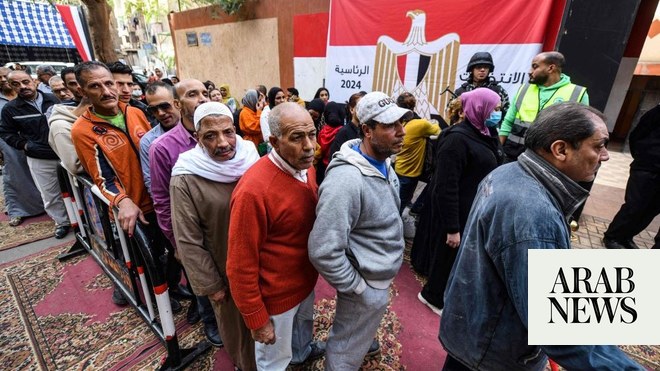
Voting is currently underway across mainland France on Sunday in decisive runoff elections that could mark a historic victory for Marine Le Pen"s far-right National Rally and its inward-looking, anti-immigrant agenda — or result in a hung parliament and political deadlock.
French President Emmanuel Macron took a significant risk by dissolving parliament and calling for these elections after his centrist party suffered heavy losses in the June 9 European elections.
These snap elections in France, a nuclear-armed nation, will impact the Ukraine conflict, global diplomacy, and Europe"s economic stability, likely undermining Macron"s presidency for the next three years.
The first round on June 30 saw unprecedented gains for the anti-immigration, nationalist National Rally, led by Marine Le Pen.
Over 49 million people are eligible to vote in these elections, determining which party will control the 577-seat National Assembly, France"s influential lower house of parliament, and who will serve as prime minister. If Macron"s centrist majority continues to weaken, he may be compelled to share power with parties opposed to his pro-business, pro-European Union policies.
Voters at a Paris polling station expressed awareness of the far-reaching implications for France and beyond.
Racism, antisemitism, and Russian cyber campaigns have marred the electoral campaign, with more than 50 candidates reporting physical attacks — an unusual occurrence in France. The government has deployed 30,000 police officers on voting day.
These heightened tensions coincide with France celebrating a unique summer, hosting the ambitious Olympic Games in Paris, seeing its national soccer team reach the Euro 2024 semifinals, and the Tour de France sweeping through the nation alongside the Olympic torch.
As of noon local time, turnout stood at 26.63%, according to France"s Interior Ministry, slightly up from 25.90% during the first round last Sunday. The first round saw the highest turnout since 1997, ending nearly three decades of voter apathy for legislative elections.
Macron cast his ballot in the seaside town of La Touquet with his wife Brigitte, while Prime Minister Gabriel Attal voted earlier in the Paris suburb of Vanves.
Le Pen did not vote as her district in northern France did not hold a second round after her outright win last week. Across France, 76 other candidates secured seats in the first round, including 39 from her National Rally and 32 from the leftist New Popular Front alliance. Two candidates from Macron"s centrist list also won seats in the first round.
Polling stations close at 8 p.m. (1800 GMT) in mainland France and Corsica. Initial projections are expected Sunday night, with official results anticipated late Sunday and early Monday.
Polls between the two rounds suggest that while the National Rally may win the most seats, it may fall short of the 289 seats needed for a majority in the National Assembly. This outcome would still be historic if a party historically linked to xenophobia and Holocaust denial emerges as France"s largest political force.
In the event of a majority win by the National Rally, Macron would be compelled to share power with a prime minister who fundamentally disagrees with his policies, known in France as "cohabitation."
Another scenario is a hung parliament, prompting Macron to negotiate a coalition with the center-left or form a technocratic government.
Regardless of the outcome, Macron has pledged not to resign and will continue as president until his term ends in 2027.
Many French voters, especially in rural areas, are disillusioned with low incomes and perceive Parisian leadership as elitist and disconnected. The National Rally has resonated with these voters by blaming immigration for France"s challenges, gaining broad support over the past decade. — Agencies












